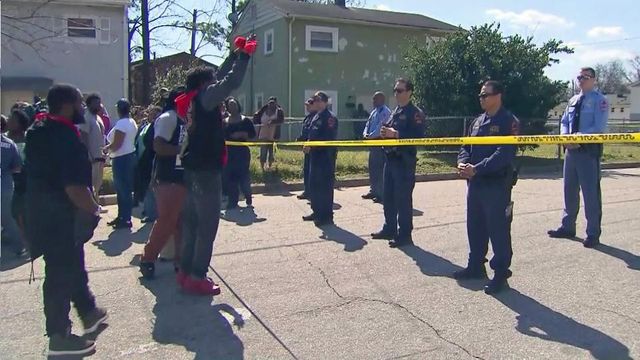Police departments struggle to reflect race of communities they serve
The image of white police officers standing along a line of crime tape with a predominately African-American crowd on the other side threw into relief the challenge of police department diversity.
Posted — UpdatedPolice say Akiel Denkins, who was wanted on drug charges, ran from the officer and tried to pull a gun before the officer fired his weapon.
It is a hiring and recruiting challenge for police departments across the country. Although Raleigh's chief of police, Cassandra Deck-Brown is an African-American woman, overall police demographics rarely mirror the city.
"One of the keys to effective policing is building trust," he said.
"Be a part of those communities, not just in an enforcement way, but in a social way," he said. "There's a social responsibility in policing."
Statistics from 2014 show that, while 61 percent of Raleigh's population is white, 73 percent of the sworn officers of the Raleigh Police Department are. African-Americans make up 27 percent of the Raleigh population but just 11 percent of the police department.
A report by the U.S. Department of Justice notes that both black men and black women are underrepresented among sworn officers in Raleigh.
Durham faces a similar challenge. Forty percent of the Bull City population is African-American, but only 26 percent of sworn officers there are.
For Raleigh resident Antwain Sanders, relationships are more important than race in building that trust.
"I don't think all RPD's (officers) are racist," he said. "It's just that we need a bond and to have a good relationship."
Scott says race can be a "trust multiplier."
"When you start building trust in that community, you start bringing people on board," he said.
Scott recommends that concerned citizens, especially young African-Americans, hold the solution to police diversity.
"To be a real solution to the problem, what you want to do is be a part of that solution. Join that organization to make that difference. Make your presence known," he said.
Scott suggests that departments give officers incentives to live in the neighborhoods they serve and increase police relations in schools.
• Credits
Copyright 2024 by Capitol Broadcasting Company. All rights reserved. This material may not be published, broadcast, rewritten or redistributed.






